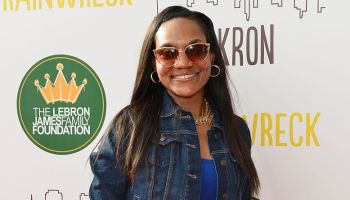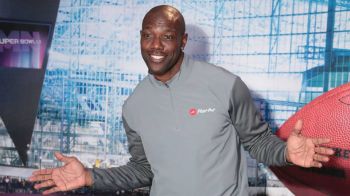 A few weeks back I accepted an invitation to be a panelist on the “Steve Harvey” show to discuss Black hair and cultural appropriation. A clip of my segment on the show has since gone viral, gaining me the moniker of “the lady in pink.”
A few weeks back I accepted an invitation to be a panelist on the “Steve Harvey” show to discuss Black hair and cultural appropriation. A clip of my segment on the show has since gone viral, gaining me the moniker of “the lady in pink.”
While the clip definitely captures my passion around affirming natural Black beauty, there is also a misconception. While the segment was framed as a “hair debate,” I have no strong opinions about how women wear their hair, be it natural, weave, dyed, permed, loc’d or bald. At the same time, what I bare witness to is that there is absolutely no room for debate over self love.
Any time we talk Black hair, it is bound to be controversial and emotional. After all, our unique experiences as Black women are tied to our hair. Not only personal, but political and cultural ties as well. Especially, as I pointed out on the show, when Black girls have been suspended and criminalized for their hair styles and choices. And when Black women have been denied access to employment and other opportunities due to hair choices. Just think back to how Gabby Douglas’ historical Olympic win was diminished and overshadowed because of criticism of her hair. Ridiculous.
As the Internet blazes on with the natural vs. weave dialogue, I staunchly believe the issue is much more nuanced. See, I may have been referred to as “the lady in pink” on social media, but in real life I am a nationally recognized Black girls advocate who takes seriously my life assignment to ensure our girls are as free and magical as they were created to be.
The conversation is bigger than hair, and it’s time for us to examine the root of the problem.
So when I hear people question if others should concern themselves with whether or not a woman chooses to alter her hair or appearance to feel beautiful and acceptable; that that is none of our business…well, I must assert that, yes, it is! Self love is communal. It is our collective problem to solve.
I believe this deeply which is why as a demonstrative act of solidarity, I decided to get the big chop last year after watching my aunt battle cancer and lose her hair to chemo and radiation treatments as well as trying to affirm my daughter through her struggles around dramatic hair loss and texture change.
One’s self love is all of our business. And we can’t just talk about it. We have to be about it.
Here’s why…
Hurt people hurt people.
In a city whose streets are filled with the blood of young girls who have shot, stabbed, beaten and through all manner of violence inflicted harm on another girl who looks like her, we know that has to be a deeper issue. And not just Chicago, but all across the country in school bathrooms and social media beefs, a lack of self love manifests itself in jealousy, resentment, boy disputes, etc. Masked pain is underlying the conflicts.
Shot callers can lack self love.
It is evident that self-hate can penetrate beyond the physical hairline. While switching hairstyles may not be the mask of choice, there are many who would just as soon assume titles, positions, accolades, zip codes, and inter-racial relationships to prop up their self worth. Sadly, they also occupy positions of authority who create policies that repress the very Black traits and traditions that cause them so much shame. Exhibit A: Supreme court justices who rule in favor of reversing laws and policies that move us forward, such as affirmative action. Exhibit B- Black school principals who suspend their students for “unkempt” aka natural, hair.
We have to train up our children.
Most tragic of all is the fact that Black Girl Magic can be stifled from the womb when a mother lacks self love. From relaxers and pressing-comb burns, to complete unrecognizable cosmetic alteration, to suicide, the conditioning of self-hating mothers have left deep seated scars that haunt the lives of women from cradle to rebirth. The painful shame is passed on through generations.
There is far too much anecdotal, experiential, and scientific research to ignore the root of our collective pain.
La’Keisha Gray-Sewell is a nationally recognized urban girls advocate, media literacy educator and speaker. She is the founder and executive director of Girls Like Me Project, a Chicago-based not for profit which trains Black girls to navigate the negative stigmas and media messages that influence their identity. She is also a certified Overflow Coach who helps a women move beyond the block, transcending the habits and beliefs that limit their shine in business and life. Catch her blogging at https://girlslikemeblog.wordpress.com. Follow on Twitter @MrsGirlsLikeMe and Facebook.com/GirlsLikeMeProject.
Black Self Love: The Conversation Is Bigger Than Hair was originally published on blackdoctor.org
















